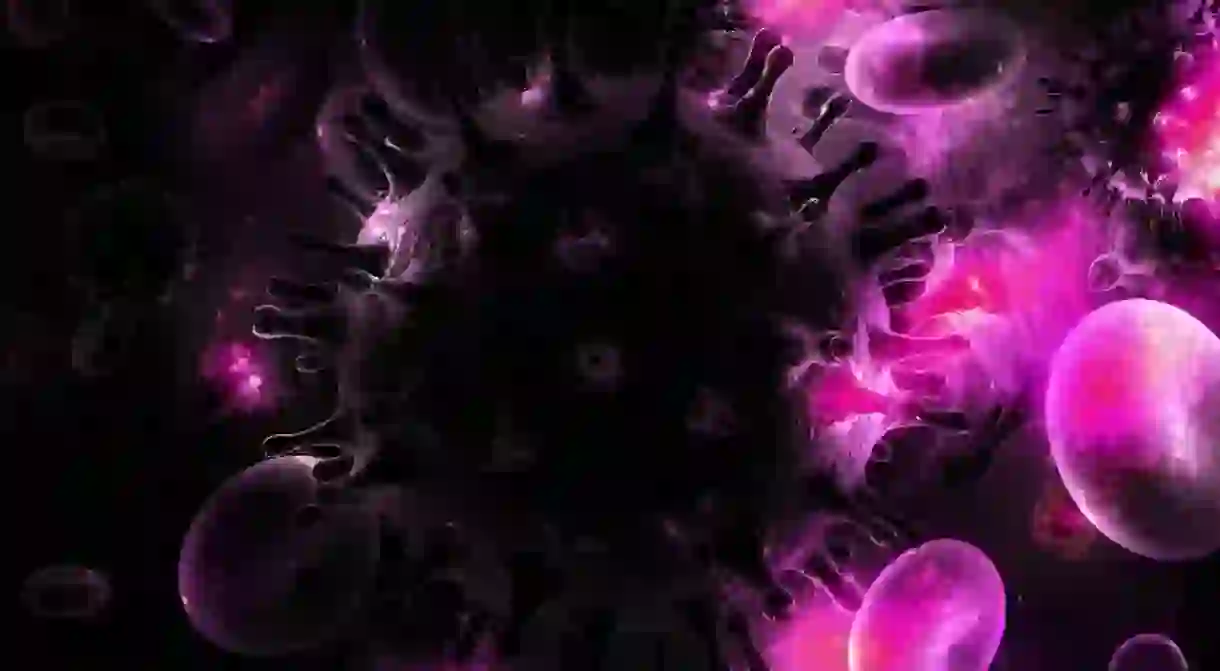If You Could Make Your Cells Resistant To HIV, Would You?

It seems we’re getting closer and closer to a cure for HIV. Researchers at The Scripps Research Institute (TSRI) in San Diego, partnered with City of Hope’s Center for Gene Therapy, have reportedly created cells that are resistant to the virus.
“The ultimate goal will be the control of HIV in patients with AIDS without the need for other medications,” TSRI senior staff scientist Jia Xie said in a press release. “This protection would be long term.”
The research, published this week in the Proceedings of the National Academy of Sciences, hasn’t been tested on humans yet. The technique for creating the cells involved placing immune cells alongside antibodies that fight HIV. The cells without the antibodies protecting them died off, while the ones paired with the HIV-fighting antibodies remained intact.
“City of Hope currently has active clinical trials of gene therapy for AIDS using blood stem cell transplantation, and this experience will be applied to the task of bringing this discovery to the clinic,” said Dr. John A. Zaia, director of the City of Hope’s Center for Gene Therapy in the Hematological Malignancy and Stem Cell Transplantation Institute. “The ultimate goal will be the control of HIV in patients with AIDS without the need for other medications.”
Human immunodeficiency virus (HIV) attacks the body’s immune system by destroying cells commonly known as “T cells.” There’s no cure for HIV, but with new therapies and innovations patients with the virus can still manage to live fruitful lives. The hope, the researchers say, is that the new resistant cells would completely replace the immunodeficient cells to create a sort of “cellular vaccination.”
“We at TSRI are honored to be able to collaborate with physicians and scientists at City of Hope, whose expertise in transplantation in HIV patients should hopefully allow this therapy to be used in people,” senior study author Dr. Richard Lerner said.













